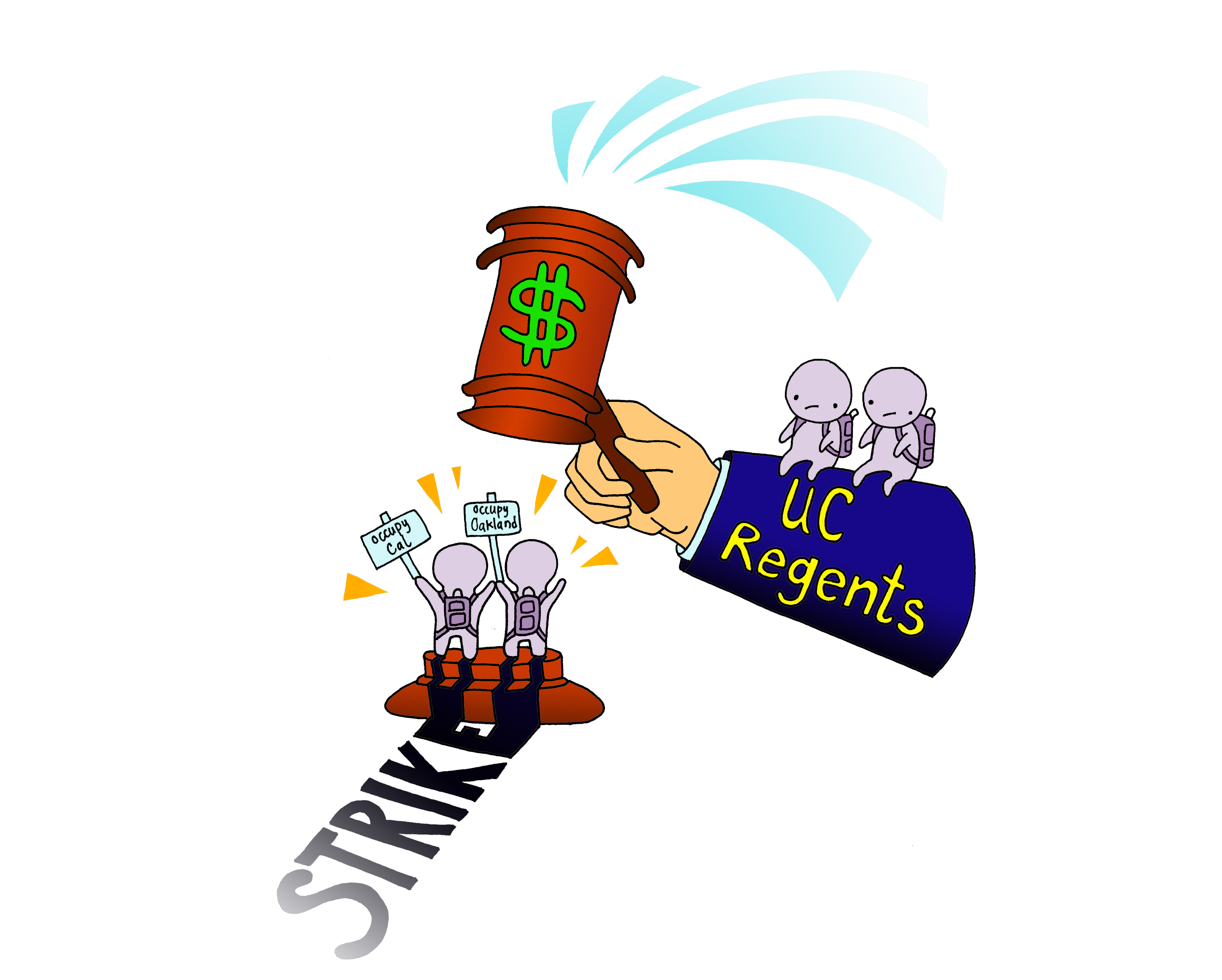The issue: For the first time, the UC Regents meeting has been canceled because of safety concerns.
What do we really know about the rescheduling of the UC Board of Regents meeting?
The press release from the UC Office of the President cites “rogue elements” and “a real danger of significant violence and vandalism.”
So far the administration has refused to clarify what these threats are.
“We don’t talk about security,” said UC spokeswoman Dianne Klein.
What we do know is that there was a massive mobilization of student groups, unions and statewide education organizations to converge on the day of the meeting. Months of planning, not to mention thousands of dollars, have now been turned into waste.
“With such short notice, it wouldn’t be possible I think to logistically organize the same number of people,” said Jennifer Tucker, UC Berkeley graduate student and protest organizer. “So the effect of rescheduling the meeting is to drastically reduce the number of students who will be able to participate and make their voices heard.”
The issue here is whether we should trust the decision to reschedule the meeting given its lack of concrete information and its costs to the student voice.
The regents may have acted in good faith, but we are in no position to assume so until they tell us more.
This rescheduling effectively trampled on the considerable effort it took to organize such a large response. The regents have now successfully extricated themselves from student presence and protest, thereby diluting our impact on the decision-making process.
The very least the UC administration owes us is an explanation of its actions. Until such time, students have the right, the duty even, to be angry.
In the past few years, the regents have been increasingly moving away from student influence and student participation.
Since 2009 the regents meeting has been consistently held in UC San Francisco, one of the smallest UC campuses. The fact that this campus has no undergraduates makes it significantly harder to organize a student presence.
With the rescheduling, the UC Regents have even decided to conduct the public comments section exclusively via teleconference, again further distancing the regents from student presence.
“They’re shutting us out more and more and more,” said Joelle Gamble, external vice president of the Undergraduate Students Association Council. “We can’t even be in the same room as them now.”
Also, the regents proposed the latest tuition fee increases this summer, a proposal that should have been presented during the academic year when a robust student voice could have been more easily marshaled in protest.
This meeting comes at the heels of more tuition fee increases. Also, a broader wave of unrest and discontentment is energizing student groups throughout the UC. Had the meeting gone as planned, there would have been a considerable student turnout to take the regents to task for the fee hikes and recent incidences of police brutality in our campuses.
There are ways to cope with serious threats other than outright cancellation. But until we know the nature of said threats, we are engaging in blind speculation.
There is an easy solution to all this: Be more transparent. Release the so-called “credible intelligence” and allow us to independently verify whether these “rogue elements” are sufficient cause for canceling the meeting.
Until such accountability is possible, the UC Regents are setting a dangerous precedent. They shouldn’t be allowed to effectively enervate dissenting student voice on such vague claims.
Email Dolom at rdolom@media.ucla.edu. Send general comments to opinion@media.ucla.edu.
